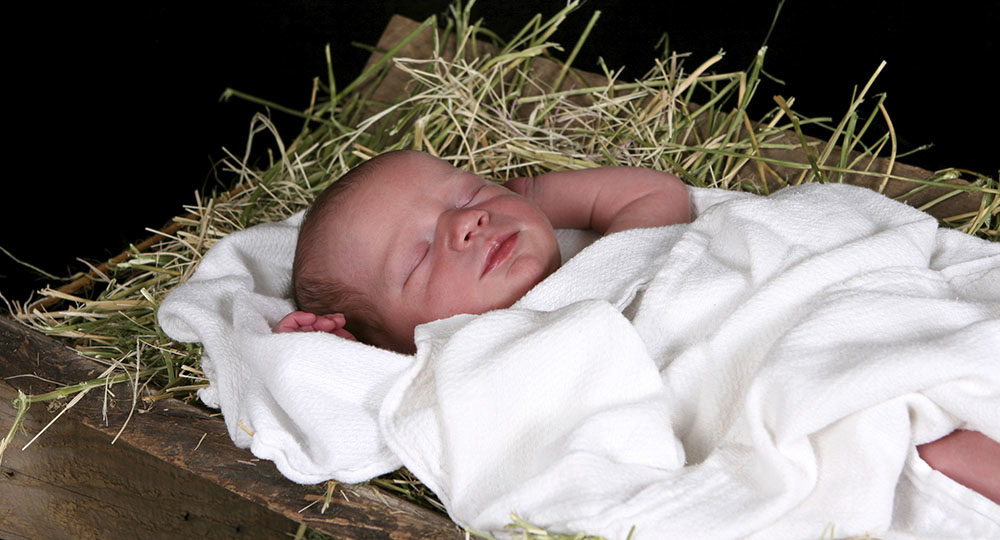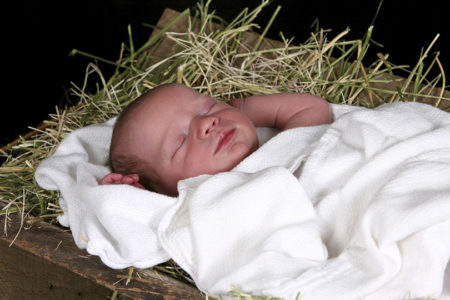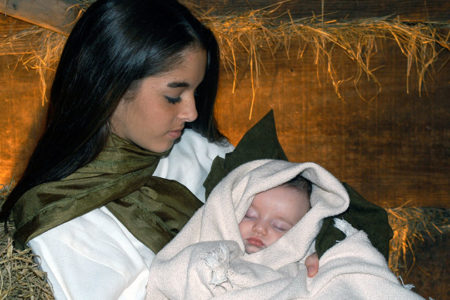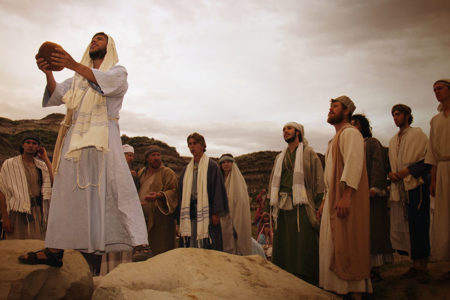Hope We Can Believe In
For the majority of Americans, the last two years have been a rough ride. During the 2008 election campaign, we were offered “change we can believe in.” Although the “change” was not defined until after the fact, people bought into it because—in this frenetically charged, any-change-must-be-good culture—different appears desirable.
However, there’s a grain of sagacity in the story of a mother telling her maturing daughter, “Never trust a man who says ‘trust me’”—a fact often borne out in politics, business, investing, personal relationships, and even some sectors of religion. Today’s Congress is a textbook case, passing bills into law without knowing the content while telling us, “Trust us. We’ll find out what’s in it after it’s passed.”
The major effects of undefined change are constant uncertainty and the sense of having been “had” when the anticipated change turns negative. And if you take a look at the entire Western world today, you’ll find extreme uncertainty about the future and great ignorance about where to look for hope. Here in America, a huge problem is diminished stability caused by a relentless war against Christians that grows more volatile by the moment.
Examples are too well-documented to repeat, but the message cannot be missed or, for that matter, ignored. Let me take you on an excursion into the bizarre that illustrates the obvious.
A federal judge ruled it unconstitutional to offer a prayer in Jesus’ name at opening sessions of the Indiana Legislature. However, he felt prayers in Allah’s name would be constitutionally acceptable. Why? Because, according to him, Allah is a generic term for God and there are so few Muslims in Indiana that calling on Allah could not be deemed an establishment of religion, unlike praying to Jesus. Judge David Hamilton’s decision was reversed by the 7th Circuit Court of Appeals, on which he now sits for life.
And if you have trouble wrapping your mind around that one, try this one: Jesus is being kicked out of the public institutions of the very nation He undergirded from its infancy to its spectacular rise as the model of freedom and justice that is the envy of the world.
A World Without Jesus
In the book The Zion Connection, I briefly discussed what a world without Jewish people would look like if genocidal anti-Semites and historical-revisionist perverters of truth had their way. My conclusion 14 years later remains the same: It would be “a world with the lights out.”
And an integral element in the Jewless-world scenario would be the elimination of Jesus. Secular elitists and their groupie brigades determined to stamp out Jesus and Christianity would have no one to attack and no one to defend their right to do so. The cost would be devastating and the consequences very likely terminal for life on this planet.
A world without Jesus would be a world that stepped back in time to the chaos and vileness of pagan hopelessness, brutality, and decadence that strangled ancient civilizations. It defies explanation that societies, such as radical American minorities and much of the self-proclaimed “post-Christian” West, would choose to return to the damning paralysis that Christ and Christianity brought deliverance from.
The root cause of this conundrum must be a condition of the human heart that, in and of itself, is incurable. Ask virtually anyone ensconced among the “politically correct” if there might be a depravity problem within the human soul and you’ll be laughed out of the room. In the minds of such pseudo intellectuals and social dabblers, the “divine spark” that liberal theologians so adored a century ago translates into “enlightenment.”
And despite all evidence to the contrary, they still insist that people who commit the most heinous crimes are merely deprived victims who, given an environmental, upward push, would have become model citizens.
A long time ago I was required to take a philosophy course—a study designed to broaden my perspective of the deeper issues confounding mankind and to enrich my life view. In the end, I was encouraged to believe philosophy is actually a search for truth that never seems to arrive at a conclusion. You’re always searching, but you never find the mother lode of wisdom you seek. For me, it was like running but never getting anywhere or searching for something I was unable to find—like where I parked the car.
A world without Jesus would be a quagmire of uncertainty, having no assurance of life beyond the grave and nothing we really could count on.
Hope We Can Believe In
Jesus Christ is the same yesterday, today, and forever (Heb. 13:8).
A man named George Cutting (1843–1934) wrote a booklet well worth reading titled Safety, Certainty, and Enjoyment. In a few short pages, he captured the essence and fullness of life in Christ, which delivers what a Christless world would not be able to articulate in the collective libraries of the entire universe. What makes Cutting’s work unique is that it directs readers to the single source of life-changing information relevant both here and in the hereafter: the Bible. He then moved on to the One who alone can deliver both the life and change we so hunger for: Jesus Christ.
Not many decades ago we moved through a time when, with Satan’s hearty approval, the fashion was to trivialize Christmas into a festival of commercial extravagance, emphasizing everything that too often ended in a mountain of wrapping paper and children crying, “Is that all?” Loosed by higher critics from a firm footing on the Scriptures, theologians were telling folks the Bible wasn’t all as written; and they relegated the Incarnation to myth and story.
What has followed is an orgy of anti-Christian antagonism, both with-in and without so-called mainstream denominations. A culture has arisen that denies, even detests, the thought of the Nativity being anything more than the birth of an impoverished, Middle Eastern child who was merely one more mouth to feed. Such a view is a declaration of war on those who hold to the inerrancy of the Book of Books and believe it to be the authentic, accurate way to salvation and fulfillment of Jesus’ promise of an abundant life through redemption.
The wonder of the Incarnation is the very simplicity fashioned by the hand of God as only He could. Imagine, a plan and transaction brought down to a level that even children in diapers can sing and, in their own way, understand:
Jesus loves me, this I know
For the Bible tells me so.
Little ones to Him belong
They are weak, but He is strong.
There is no “uncertain sound” (1 Cor. 14:8) in the certainty of the hope found in Christ, delivered in the context of a gift available to everyone who will believe and accept it. Think of it: a treasure so rare it is beyond human appraisal, yet given as a gift to rich and poor alike—no exceptions, no restrictions, no discrimination. Only the God who so loved could or would do this.
Though there may be little or no acknowledgement of God’s entrance into time by way of a manger in Bethlehem of Judea, there is a jubilee celebration that resounds around the world.
On my many trips to Israel, I always found great pleasure in going near Bethlehem and looking down on the Shepherds’ Fields over which the angels announced to the band of shepherds that the Savior had been born in Bethlehem. And whether our vantage point was in the cave behind the YMCA, at the tower that provides a wonderful panoramic view of the fields, or on the town walkway overlooking the terraces, we always started to sing.
Something about the experience brings together everything embodied in the message of Christ and its application to the individual human heart. In singing the Christmas carols, we grasped something genuine, intensely personal, and pristinely certain. Every one of us came face to face with true hope, change, and an undeniable sense of eternal tri-umph. Like us, countless millions upon millions the world over have, in reality, experienced a change we can count on—one that encompasses “yesterday, today, and forever.”
What Christmas embodies in the hearts, minds, and souls of true believers is articulated in Edward Mote’s 19th-century hymn:
My hope is built on nothing less
Than Jesus’ blood and righteousness;
I dare not trust the sweetest frame,
But wholly lean on Jesus’ name.
On Christ the solid Rock I stand,
All other ground is sinking sand;
All other ground is sinking sand.
So, do you want to possess or do you now possess the hope you can count on? It’s the one hope that can be offered with full assurance that it will not change and cannot be taken away or erased from the calendar. My recommendation: Let’s all make a stop at the manger and sing a carol. Merry Christmas.






